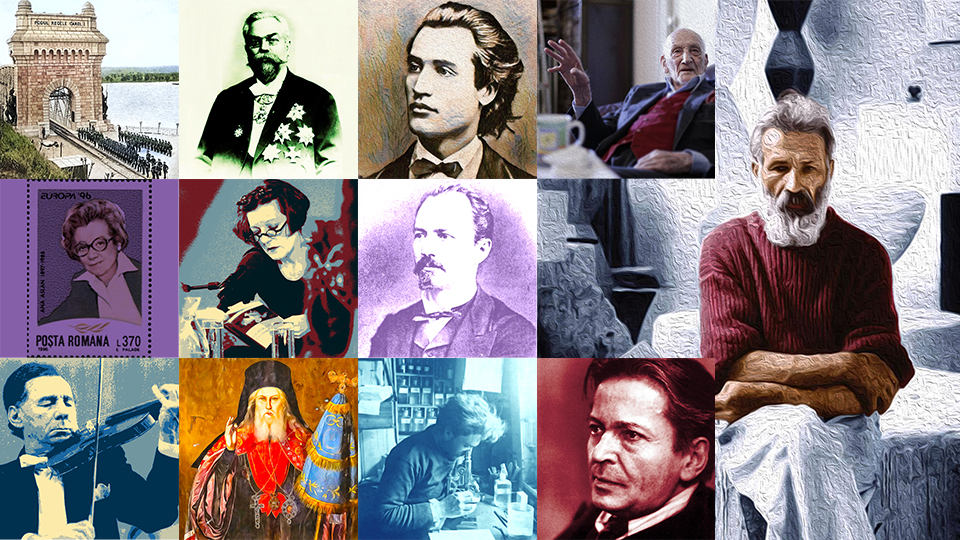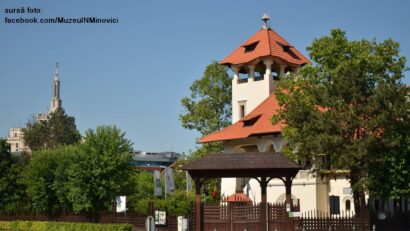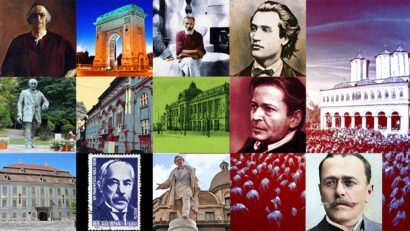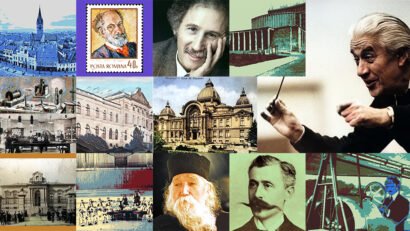Booksellers from old Bucharest: Leon Alcalay
Born in Bucharest in 1847, Alcalay was attracted to books from his adolescence.

Steliu Lambru, 28.04.2024, 14:00
Throughout history, culture has been a producer of economic and social change, as well as of spiritual development. In turn, books have educated minds and physical skills. The first information revolution that benefited the book was the printing press, invented by the German Johannes Gutenberg in the mid-15th century. Since then, in the book and printing press industry new trades appeared and developed such as typographer, compositor and later linotypist. But books also gave rise to such jobs as publisher, bookshop owner, bookseller, and book trader.
The history of the widely circulated book in the Romanian space begins in the middle of the 19th century. The book trade appears against the background of the expansion of primary education and the drop in illiteracy and, more generally, as a result of the emergence and consolidation of the modern Romanian state. From an object intended for elites and ecclesiastical circles, the book diversifies and becomes a product for wide circulation, accessible to all classes and social categories. Popularizing the book was both a business opportunity and a means to educate those who could not afford expensive books. One of the best-known publishers, bookshop owners and booksellers in old Bucharest before 1945 was Leon Alcalay.
Born in Bucharest in 1847, Alcalay was attracted to books from his adolescence. As the Bucharest of the 1870s was in a great fever of change and the infusion of books was massive, he started out as an itinerant seller of books, magazines and old prints. He was, what we call today, an antiquarian book seller. He placed his business on Calea Victoriei, at the intersection with Elisabeta boulevard, on the main street of the city, near the “Grand Hotel du Boulevard”.
Felicia Waldman from the University of Bucharest, who is inventorying the landmarks of the Bucharest Jewish community, also put on the map of Jewish Bucharest the place where the history of the Alcalay brand began: “On the ground floor of this hotel there was, from the very beginning, since 1867 when it was built, the Alcalay universal bookstore. Leon Alcalay was a Sephardic, Spanish-born Jewish bookseller who began selling second-hand books at the age of 16 behind the hotel, where Eforie Street is today. The Russian legation was located there at the time, and in front of it there were two shelves of second-hand books. He was so passionate about books in general that from this small business of selling second-hand books he became the biggest publisher, bookseller, book producer and producer of all categories in the publishing industry, with this universal publishing house Alcalay.”
Leon Alcalay’s book business was growing, and he moved to a higher level, publishing and marketing topical books. A modern spirit, Alcalay wanted to spread the universal values of humanism and culture in Romania as well. Thus, in the trade of the books he printed or resold, universal literature held pride of place. The greatest names of universal literature thus reached the Romanian readers. He followed the trends on the Western book market and thus the pocket-book-format inspired by the famous “Library for all” collection from Reclams Universal Bibliothek in Leipzig appeared in Romania. Until the end of the First World War, Alcalay was one of the leaders on the Romanian book market. In 1920, however, the founder of ‘the book for all’ in Romania dies at the age of 73, ending an era.
Here is Felicia Waldman back with details: “In 1920, he died and his family inherited and continued the bookstore business. It was practically all over the country, not only in Bucharest. It was the bookstore that brought to Romania what is called the “Library for all” concept. It was a German collection that made literature accessible to the less financially stable readers. Basically, he made books available at lower prices, so that both the Romanian and universal literature became accessible to a wider audience, through the Alcalay bookstore and the “Library for all” collection. The “Library for all” collection continued during the communist period, but it was obviously taken over by another publishing house, as the Alcalay publishing house no longer existed.”
At the end of the 1930s, the name of the founder no longer appeared on the building that hosted the Alcalay publishing house, being replaced with the name of Remus Cioflec. And the explanation for that change is state anti-Semitism. Felicia Waldman is back at the microphone: “In 1938-1939, the Alcalay family understood what was happening, understood what was to come, and sold the business to Remus Cioflec. He was also a publisher of that time who had the opportunity and also the interest to buy the Alcalay network which he practically saved. The Alcalay publishing house was saved because Cioflec agreed to take it over and then it was nationalized by the communists, which meant its end. But at least it lasted until 1948.”
Book accessibility in the Bucharest of yore is linked to the name of Leon Alcalay. Old books enthusiasts can find, even today, in second-hand bookshops, the brand that brought culture to everyone. (LS)






























